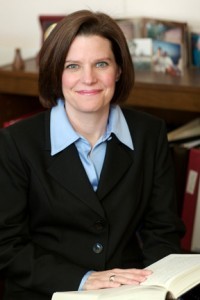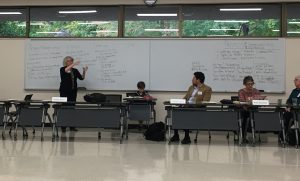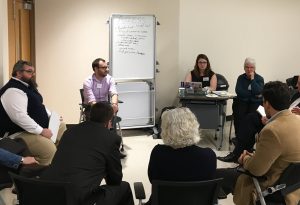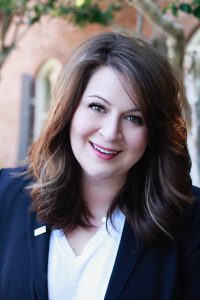 Amanda Martin, general counsel to the N.C. Press Association and a lawyer at Stevens Martin Vaughn & Tadych, PLLC, has graciously allowed me to post this information that she recently shared with her clients through her newsletter, FIRST FOR A REASON: Info & Ideas About the First Amendment & Media Law. If you would like to sign up for her newsletter just email First@smvt.com with “subscribe” in the subject line. You can also follow her on Twitter @ncmedialaw.
Amanda Martin, general counsel to the N.C. Press Association and a lawyer at Stevens Martin Vaughn & Tadych, PLLC, has graciously allowed me to post this information that she recently shared with her clients through her newsletter, FIRST FOR A REASON: Info & Ideas About the First Amendment & Media Law. If you would like to sign up for her newsletter just email First@smvt.com with “subscribe” in the subject line. You can also follow her on Twitter @ncmedialaw.
TRANSPARENCY IN THE TIME OF COVID-19
I want to begin with my gratitude for the vital and hard work that you all have been doing to report on the coronavirus crisis. Personally, I check five or six news websites about every hour to see what has developed, what has changed. I know I am not alone. On behalf of all your readers and viewers, thank you!
It has become apparent that in the coming weeks and months, government operations are going to be disrupted beyond recognition, making your job harder at the very time that it is more important. You’ll find here a few reminders I hope will be useful, as well as links to some government resources that might be helpful.
First, UNC’s School of Government Professor Frayda Bluestein reminds, there is nothing about the Governor’s state of emergency declaration that relieves public officials and public agencies of their obligations under North Carolina open government laws. Neither the Governor nor local officials can wipe away those requirements.
Second, a quick refresher on the Open Meetings Law. Remember, the OML applies to quorums of public agencies. At its core, the OML requires three things: notice, access and minutes.
NOTICE
- Notice for non-emergency, special meetings must be given at least 48 hours in advance of a meeting. To get individual notice, though, you must be on the notice list. If you haven’t done so already, ask to be on that list for any public body you cover (including committees and subcommittees). Public bodies can require you to renew your request annually, so just be sure.
- It’s fairly easy to imagine there will be lots of emergency meetings in the future. The law for emergency meetings doesn’t have any specific time requirement. They can be called with short notice, and again, notice must be provided to anyone on the notice list.
ACCESS
- Access means reasonable access. Imagine the Buncombe County Board of Education decides they will discuss at their next meeting canceling school for the balance of the year. And imagine everyone in Buncombe County wants to attend. They won’t all fit in the meeting room, and our Court of Appeals has ruled that the board doesn’t have to find a big enough room (or coliseum). Rather, agencies must provide access for a reasonable number of people. What is reasonable may be seen through the lens of health department guidance on how many people can gather together, but surely allowing some of the public must be required.
- The OML provides for at least some public bodies to meet electronically. Professor Frayda Bluestein has written that there is no express statutory authorization for local governmental bodies to meet by phone or other electronic communications and that it’s questionable whether they can. But if they do, the law is clear that the public must be given a means to listen in. Bodies must provide “a location and means whereby members of the public may listen to the meeting and the notice of the meeting required by this Article shall specify that location.” G.S. § 143-318.13(a). The law allows charging a fee of $25.00 per listener, though Professor Bluestein has recommended that agencies waive that fee.
MINUTES
- The OML requires that minutes be kept for all meetings. And for closed meetings, there must be a record “so that a person not in attendance would have a reasonable understanding of what transpired.” G.S. § 143-318.10(e).
- There is no provision in the law requiring a recording of meetings – audio or video – but urging such recordings might be one way to mitigate the lack of transparency that might lessened access that results from this emergency.
Remember to use the Open Meetings Law and Public Records Law in concert with one another. If you are not able to be present at a meeting – either because it was closed to the public or because you’re covering developing news over at the hospital – remember that likely there are associated public records that might be instructive. In addition to asking for agendas and meeting packets, ask for memos, emails or other documents exchanged in advance of (or after) the meeting. Ask for notes taken by public officials at the meeting, too.
UNC’s School of Government has several resources detailed analyses, including these:
- the Open Meetings Law and Public Records Law under the declared state of emergency https://canons.sog.unc.edu/meetings-and-public-hearings-under-the-coronavirus-state-of-emergency/ and
- public bodies canceling and rescheduling meetings https://canons.sog.unc.edu/cancelling-and-rescheduling-meetings/
- public disclosure of confirmed COVID cases https://canons.sog.unc.edu/how-will-we-know-if-covid-19-is-in-north-carolina-a-look-at-the-states-communicable-disease-reporting-laws/
- a collection of state resources https://www.sog.unc.edu/resources/microsites/coronavirus-covid-19
Stay tuned for updates on the issue of court access in light of Chief Justice Beasley’s order closing most courts. To see Chief Justice Beasley’s COVIC press conference and for official updates on the courts, including memos and court orders, go to
https://www.nccourts.gov/covid-19-coronavirus-updates
Finally, as one reporter said just last week when we were discussing COVID-19, these laws set minimums for transparency. Our job always is to push for as much access and as much information as possible. That’s how we can best serve the public who are relying on us to collect, digest and report information in these incomprehensible times.
Email us with feedback, questions, or topics that interest you: First@smvt.com
If you know someone else who might be interested in information like this, please forward this email so they can sign up by emailing First@smvt.com with “subscribe” in the subject line.



 The UNC Center for Media Law and Policy is proud to announce that it has hired its first research fellow, Rachael Jones. Rachael, who started this week, will oversee the Center’s research initiatives, with a particular focus on government transparency.
The UNC Center for Media Law and Policy is proud to announce that it has hired its first research fellow, Rachael Jones. Rachael, who started this week, will oversee the Center’s research initiatives, with a particular focus on government transparency. I’m excited to announce that the Center will be hiring a
I’m excited to announce that the Center will be hiring a 